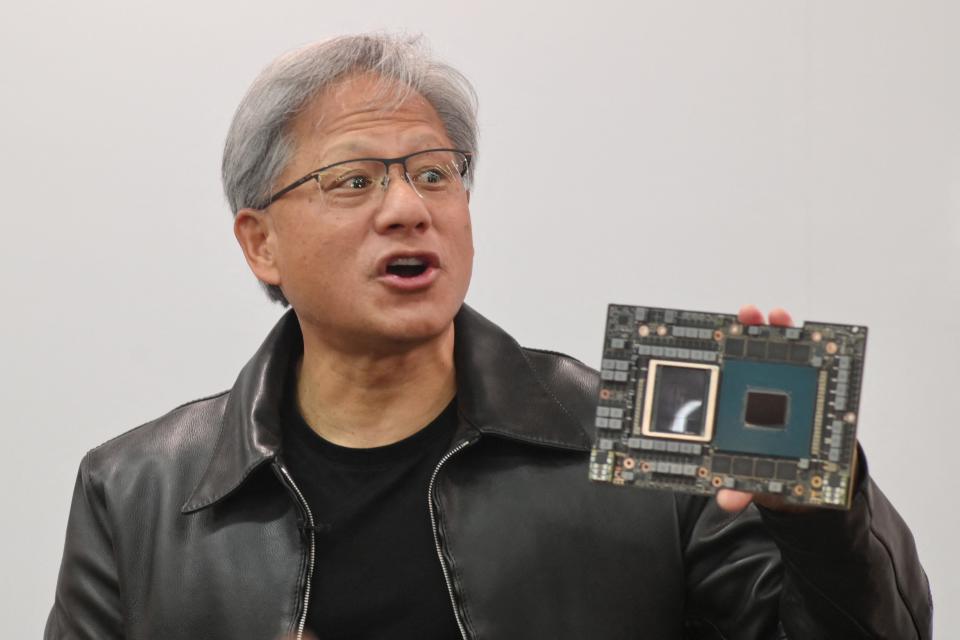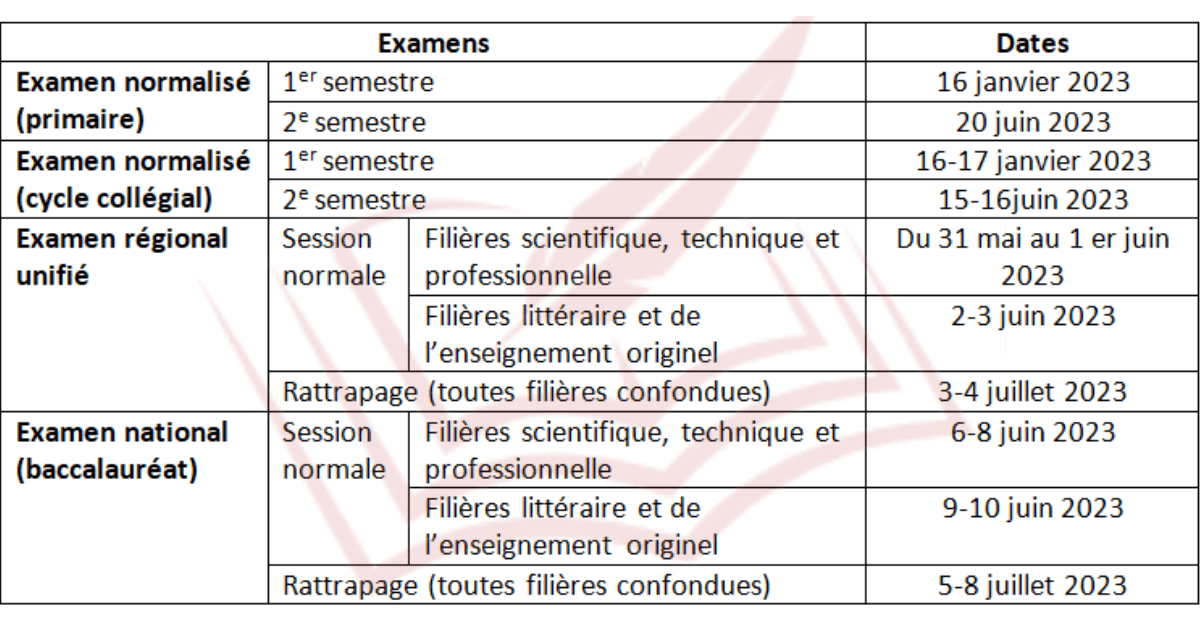The Growing Threat Of Chinese AI: A Warning From Nvidia CEO Jensen Huang

Table of Contents
Jensen Huang's Concerns and Statements
Jensen Huang, a highly respected figure in the tech world, has expressed serious concerns about the burgeoning power of Chinese AI. While he hasn't issued a single, sweeping statement, his concerns are woven throughout his public appearances and interviews. He highlights China's massive investment in AI research and development, coupled with its strong government support and vast talent pool, as key factors driving its rapid progress. He implicitly acknowledges the potential for this rapid progress to significantly alter the global balance of power. Though he hasn't named specific companies, his remarks clearly point to the potential challenges posed by the scale and ambition of Chinese AI initiatives.
- Specific Concerns: Huang's concerns center on the sheer scale of China's investment in AI, the centralized, government-driven nature of its development, and the enormous talent pool fueling its progress. He subtly suggests a potential for surpassing the US and other Western nations in key AI capabilities.
- Chinese AI Companies and Initiatives: While not explicitly mentioned by name, Huang's concerns indirectly reference the significant progress made by Chinese tech giants like Tencent, Alibaba, and Baidu in areas like facial recognition, natural language processing, and AI-powered cloud services. These companies are actively developing and deploying AI technologies across various sectors.
- Impact on the Global AI Landscape: Huang's warnings highlight the potential for a significant shift in the global AI landscape, suggesting that China's rapid advancement could lead to a redistribution of power and influence in the technological arena, impacting global competition and innovation.
The Rapid Advancement of Chinese AI
China's rapid strides in AI are not accidental. Several factors contribute to its impressive progress:
- Massive Government Investment: The Chinese government has poured billions of dollars into AI research and development, creating a fertile ground for innovation and fostering the growth of AI companies. This level of sustained investment far surpasses many other nations.
- Access to Huge Datasets: China's massive population provides access to enormous datasets crucial for training advanced AI models. This data advantage is a significant competitive edge.
- Strong Focus on AI Education: China is investing heavily in AI education at all levels, cultivating a large pool of skilled AI researchers, engineers, and developers. This ensures a constant supply of talent to fuel the sector.
- Government Initiatives: The Chinese government actively promotes AI adoption across various sectors, from healthcare and finance to manufacturing and transportation, creating a robust ecosystem for AI development and deployment.
- Successful Chinese AI Companies: Companies like SenseTime, Megvii, and CloudWalk have achieved global recognition for their advancements in facial recognition and other AI technologies, showcasing China's capabilities.
Potential Geopolitical Implications and National Security Concerns
The implications of China's AI dominance extend far beyond economic competition. They raise significant geopolitical and national security concerns:
- Economic Competition: China's AI prowess could significantly impact global market share in various sectors, potentially displacing Western companies and disrupting established economic power structures.
- National Security Implications: The application of AI in military technologies, such as autonomous weapons systems and advanced surveillance, presents significant national security risks. Cybersecurity concerns are also amplified.
- Technological Dependence: Over-reliance on Chinese AI technologies could create vulnerabilities for other nations, leaving them susceptible to technological coercion or manipulation.
- Ethical Considerations: The potential misuse of advanced AI technologies, particularly in areas like surveillance and social control, raises serious ethical concerns, requiring international cooperation to establish responsible AI guidelines.
The US Response to the Chinese AI Threat
The United States is actively responding to the perceived Chinese AI threat through various strategies:
- Increased Investment in AI R&D: The US government is increasing funding for AI research and development, seeking to maintain its technological edge and compete with China's advancements.
- Attracting and Retaining AI Talent: Efforts are underway to attract and retain top AI talent within the US, ensuring a robust domestic workforce capable of driving innovation.
- Protecting National Security: The US is implementing regulations and initiatives aimed at protecting national security from potential threats posed by advanced AI technologies.
- International Collaborations: The US is collaborating with allies to address the challenges posed by AI and to establish international norms for responsible AI development.
The Future of the AI Race: China vs. the West
Predicting the future of the AI race is challenging, but several potential scenarios exist:
- Scenario 1: Chinese Dominance: Continued rapid advancements by China could lead to a scenario where it holds a significant lead in key AI technologies, influencing global standards and shaping the future of the field.
- Scenario 2: Competitive Coexistence: A more balanced scenario could see sustained competition between China and the West, with both sides making significant contributions to AI development, albeit with different focuses and priorities.
- Scenario 3: Collaborative Progress: While less likely given current geopolitical tensions, international collaboration could lead to shared advancements in AI, mitigating risks and maximizing benefits for all.
The long-term challenges include managing ethical concerns, ensuring responsible AI development, and fostering a global environment conducive to innovation. Opportunities exist for collaboration and the development of mutually beneficial AI applications across various sectors.
Conclusion
Jensen Huang's warnings about the growing threat of Chinese AI serve as a wake-up call. China's rapid progress, fueled by massive government investment, access to vast datasets, and a focus on talent cultivation, presents significant challenges to the West. The potential geopolitical implications, ranging from economic competition to national security risks, are profound. Understanding the growing threat of Chinese AI is crucial. The future of the AI race will depend on strategic investments, talent development, responsible innovation, and potentially, international cooperation. Stay informed on this rapidly evolving landscape and continue the conversation to ensure a responsible and balanced development of artificial intelligence globally. The future of artificial intelligence, and indeed global technological leadership, may well depend on it.

Featured Posts
-
 Swiatek Triumphs As Ruud And Tsitsipas Suffer Unexpected French Open Losses
May 30, 2025
Swiatek Triumphs As Ruud And Tsitsipas Suffer Unexpected French Open Losses
May 30, 2025 -
 Metallicas M72 Tour 2026 Uk And European Dates Revealed
May 30, 2025
Metallicas M72 Tour 2026 Uk And European Dates Revealed
May 30, 2025 -
 Norrie Stuns Medvedev Djokovic Cruises To Next Round At French Open
May 30, 2025
Norrie Stuns Medvedev Djokovic Cruises To Next Round At French Open
May 30, 2025 -
 Bts 2025 Dates Des Examens Et Annonce Des Resultats
May 30, 2025
Bts 2025 Dates Des Examens Et Annonce Des Resultats
May 30, 2025 -
 Amorims Worrying Claim About Manchester United Star Trust Issues
May 30, 2025
Amorims Worrying Claim About Manchester United Star Trust Issues
May 30, 2025
